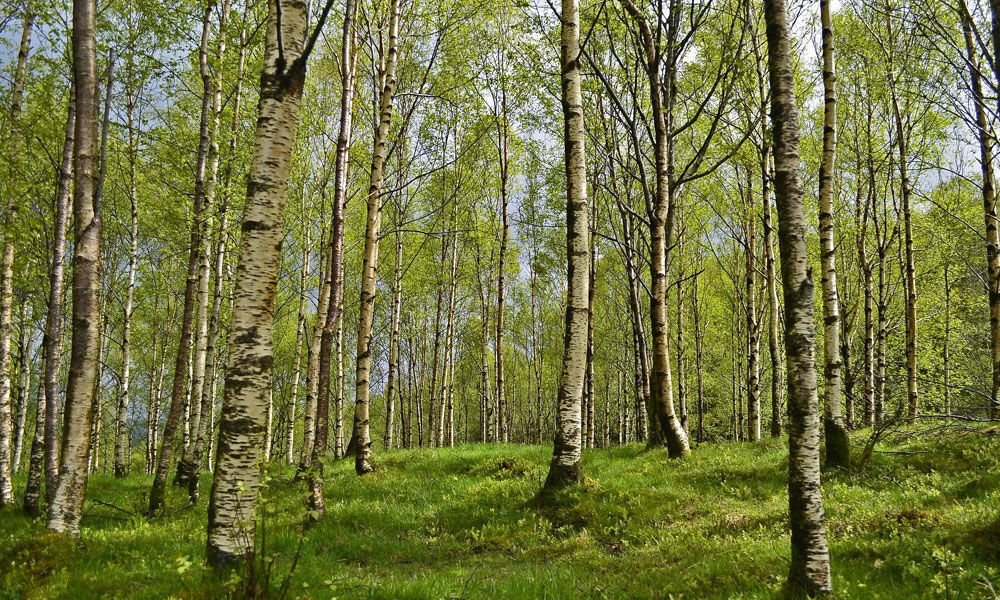Learn about trees & forests
 Learn about trees & forests
Learn about trees & forestsLearn how to guess the age of a tree, what's inside a tree's trunk, what lives in a forest, why some trees never lose their leaves, and much more!
There are many kinds of trees in the world. Scientists use a system calledclassification to organize different types of trees and make them easier to identify and study. Classification breaks different kinds of similar things (such as trees) down into smaller groups so that all the objects in the group have things in common.
All trees have several parts. The basic parts that all trees have in common are roots, a trunk, branches, and leaves. These are things that make trees trees. This is the first step in classification. It tells you that a tree is a tree and not an animal or a different plant.
Even though all trees have leaves, there are some major differences in what happens to those leaves. Trees that lose all of their leaves at once during one season (usually Fall) and grow new ones in a later season (usually Spring) are called deciduoustrees. In contrast, some trees have leaves all year round. They do lose some of them, but new ones grow back right away. These types of trees are called evergreens.
Within the groups of deciduous and evergreen trees, there are lots of differences. There are fruit trees and trees that just get flowers, there are trees that don't have any flowers, and there are trees that have pinecones. All of those different trees are classified in different groups. Are you starting to understand how classification is helpful?
Tree Trunks: A tree's trunk is very important. It is how nutrients and water get from the tree's roots to its branches and leaves. It also gives the tree support — the trunk holds up the whole tree! So, what makes a tree trunk so special? Let's start from the outside layer.
You've probably touched many trees and maybe even climbed a few. If so, you know that some trees have smooth bark and some have very rough, chunky pieces of bark. Bark protects the tree from things like very cold or very hot temperatures, insects that try to get inside and eat the tree, and diseases that could harm or kill the tree.
Have you ever seen a tree stump leftover from a tree that was cut down, or looked at the end of a log? If you have, you may remember seeing lots and lots of rings or layers inside the trunk. These layers are created by the cambium (a thin layer in between the wood and bark of every tree), where new cells are made. Tree trunks grow a new layer each year, making the tree bigger and stronger.
The reason you can see the layers inside a tree trunk is because they start out a light color when they begin to grow in the spring, and by summer the outside of the new layer is much darker! Then, the next year, in the spring, a new layer will start that will be a light color again. The wider a ring is, the more the tree grew that year.










